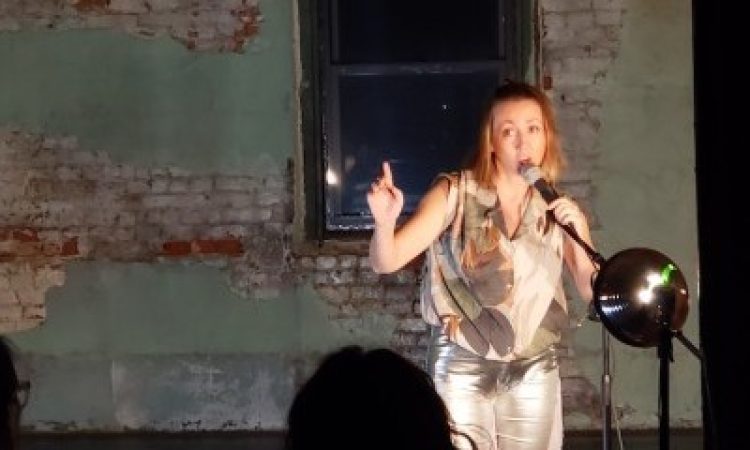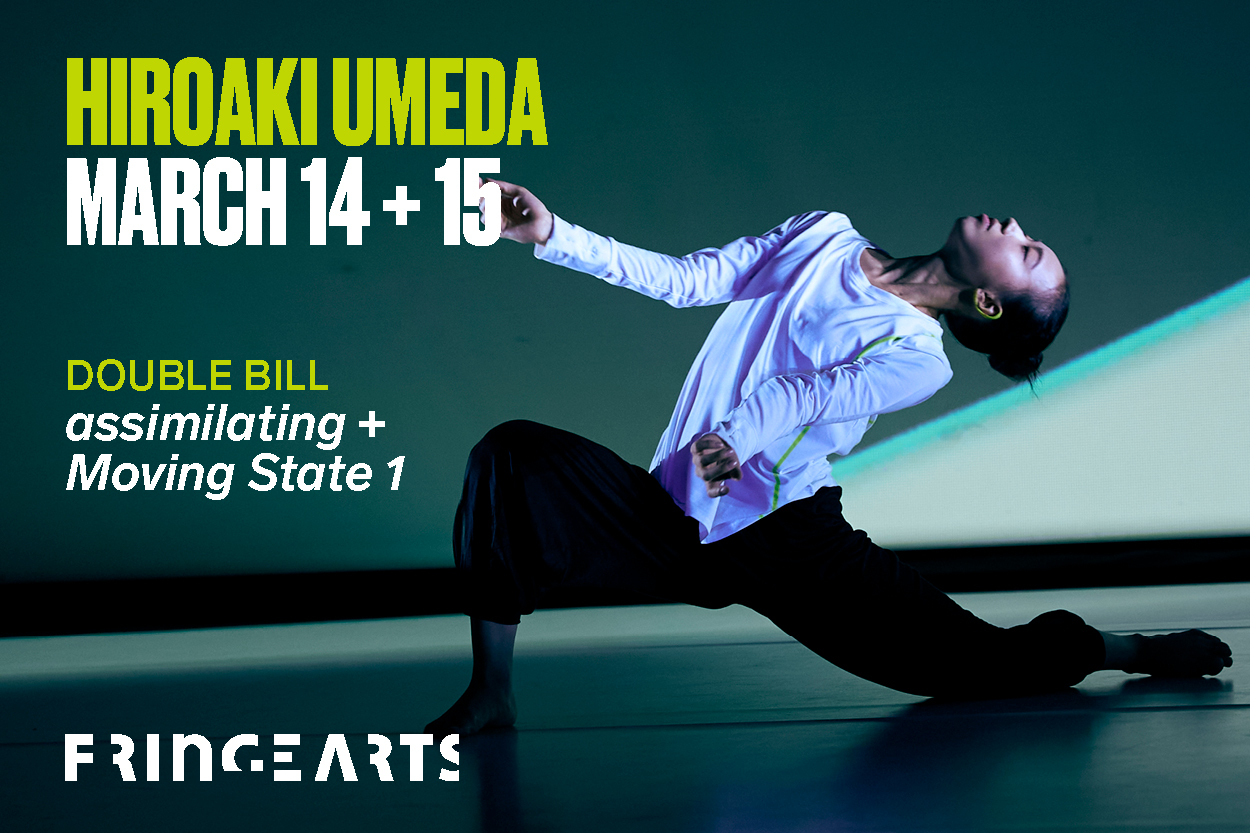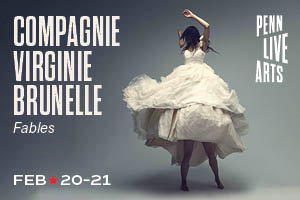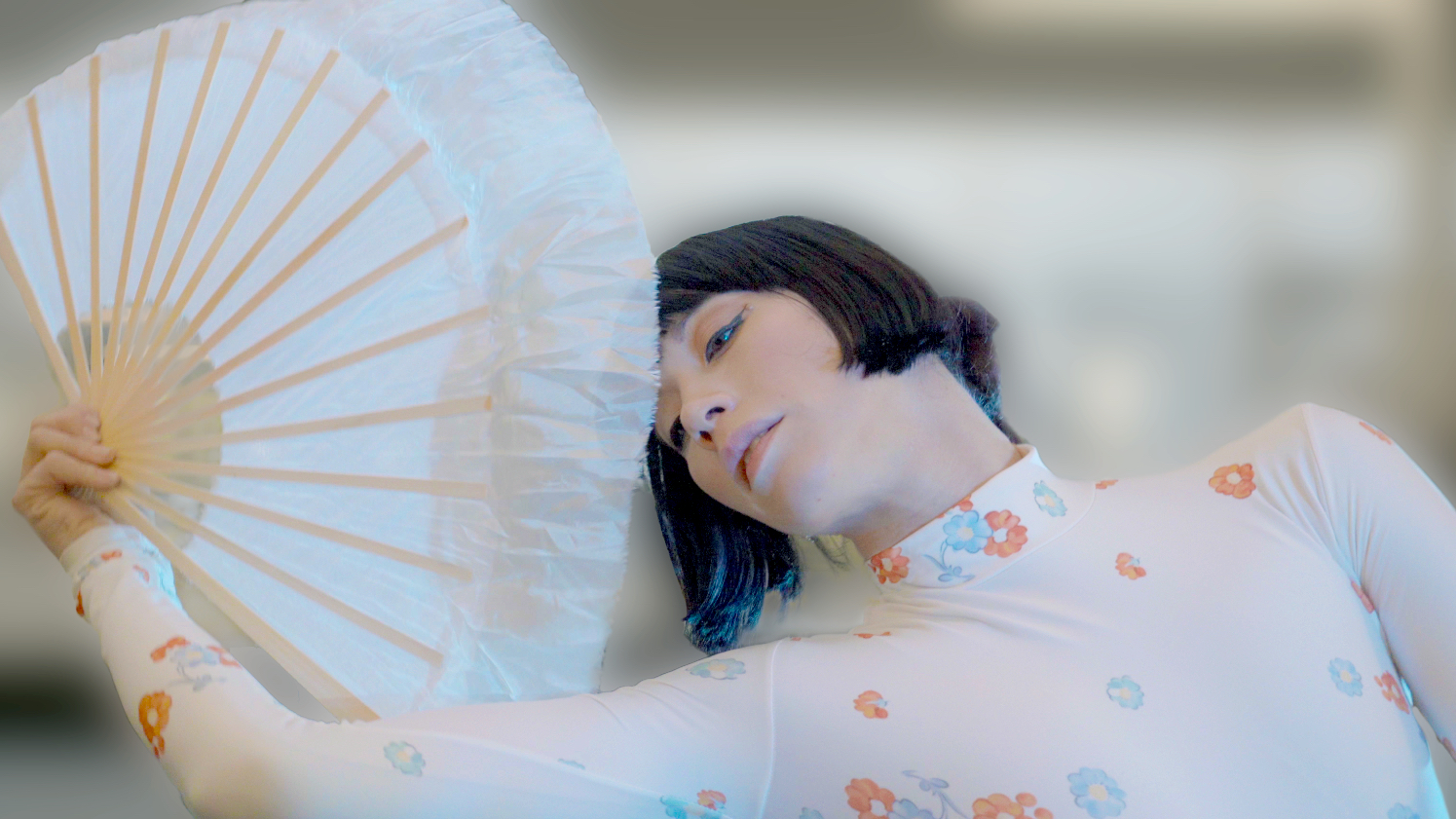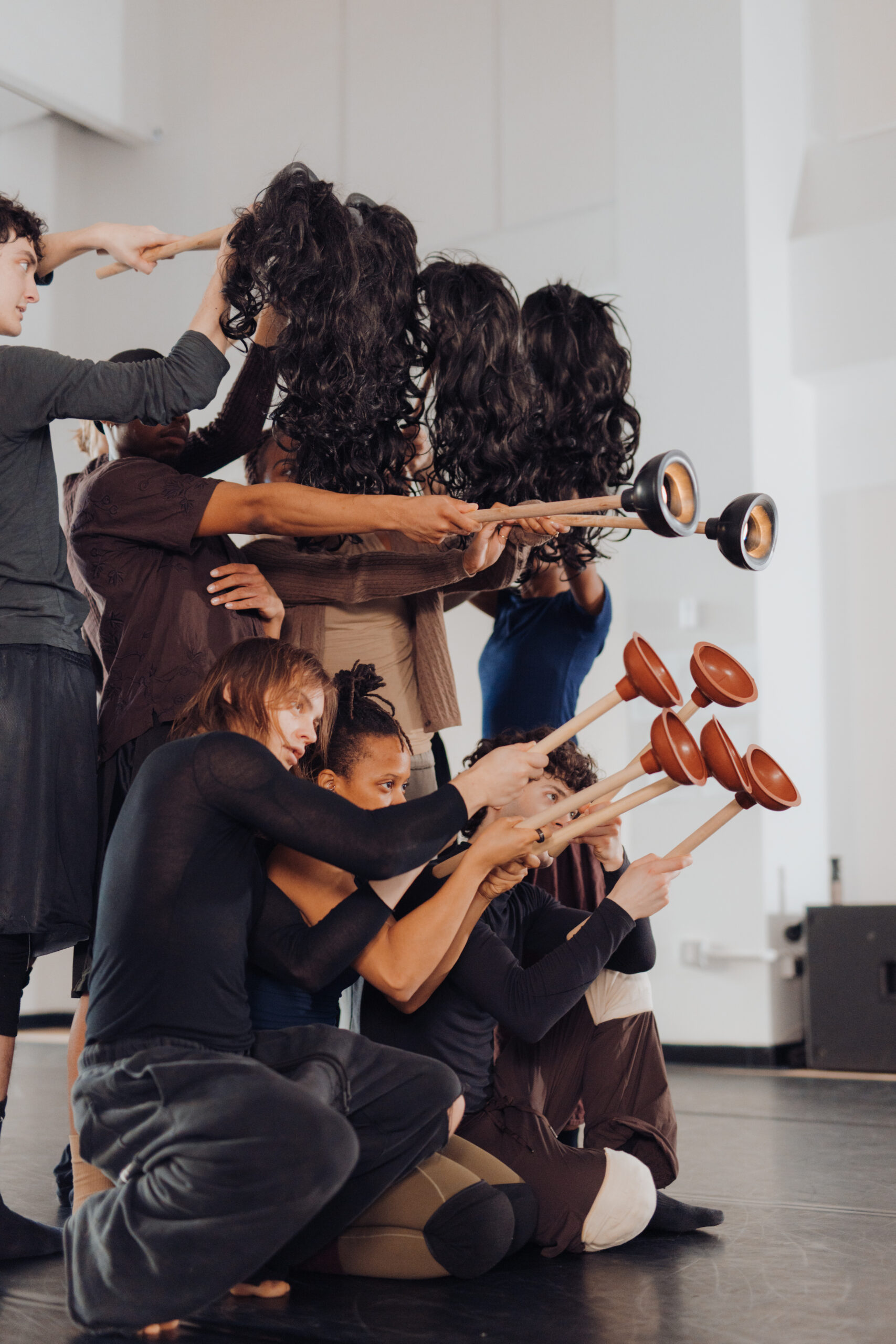As Aleksandra Bożek-Muszyńska crept up the side staircase in The Iron Factory, she bobbed forward and back ever so slightly between robotic steps. It was near imperceptible; I only caught it because the silver fringe lining the seams of her pants waved in opposition, its shimmy betraying the movement. Her walk stuttered, hiccupped. A Polish pop song crooned.
Later: Magda Jędra, after clasping the hands of everyone in the audience, placed crisscrossing cables along the floor to form a web. She retreated to a corner and stuffed scarves into the shoulders of her shirt, then put a green turtleneck sweater over. Her nose and ponytail just peeking out, her hyper-real shoulders engulfing her, she lay on the floor and flittered from gently tapping the ground to raking the space with her eyes, to sitting upright.
Later still: With roots in Bulgaria, the Philadelphia foil to performances from the two Poles, Zornitsa Stoyanova, stood tall in a white plastic-tarp skirt and paper cylinder covering her torso and face. “Hello!” she cheered uncomfortably at the microphone, her gesticulating limbs oddly inhuman as they emerged from the armholes. I caught the peace sign, the middle finger, and the “crazy” gesture, though they were disembodied from her words. “I often have to explain my name to people in three parts,” she said. “To start, we have Zorro,” offering the Z slashing motion, “and at the end, we have pizza, neither of those American,” completing a triangle in the air. “And, in the middle, we have this,” jutting out her knee from between the folds of the plastic skirt. “Zor-ni-tsa.” The taped edges of the cylinder gently opened, revealing a grinning Stoyanova, like a chrysalis in a paper-and-plastic shell.
Earlier: Bożek-Muszyńska fiercely stirred a mixture of egg yolk and sugar in an olive-colored glass mug while lip-syncing in Polish to another song. Despite her impassioned, silent bellowing, we heard from her only the frenzied clinkclinkclinkclinkclink of the metal spoon whirring faster and faster against the pop beat. When the tune ended, she brought the concoction (still mixing) over to a woman in the audience, asking her name, and then asking her to take over the whipping. Then Bożek-Muszyńska grabbed the microphone, held it up to the mug, and said, “This is what Ashley sounds like.”
After: To another driving beat, Jędra removed her green sweater, laying it down gently so that it trailed from the foot of an audience member across the cables towards the center. One at a time, with much tenderness, she slid out the scarves from her shoulders and continued the line; then with her brown boots, her socks, then pants. She took off her shirt and, bare-chested in underwear briefs, lay down on her side, completing the circuit. The bumps of her spine rippled with each breath.
Stoyanova also unclothed herself over the course of her piece. Completely naked, having shed both the faux cocoon and her shirt, jeans, and underwear, she moved through cheesy grins that crumbled into grimaces of self-doubt, throwing us the finger then peace sign then finger again, and flinging herself with abandon throughout the space. At last, when she turned her back to us and donned a reflective dome to alternate covering and revealing her face, chest, and genitals, the microphone on the stand opposite her slowly lowered to point downward. Strongly reminded of a sexual response often reflecting a failure of stimulation, I giggled, and others around me did too.
The final work of the evening held both Bożek-Muszyńska and Jędra together onstage in the only duet. They danced, at times pedestrian or abstract and at other times recognizably pop-culture; they crawled around with cushions on their backs; they twittered back and forth in Polish. Flat up against one of the crumbling turquoise walls of the space, Jędra turned to face us with tears in her eyes. I met her gaze in that moment, yet felt distinctly that she was across the room and I was there, in a chair, watching.
Polish Contemporary Dance in Philadelphia, Aleksandra Bożek-Muszyńska, Magda Jędra, and Zornitsa Stoyanova, The Iron Factory, Dec. 17-19.
